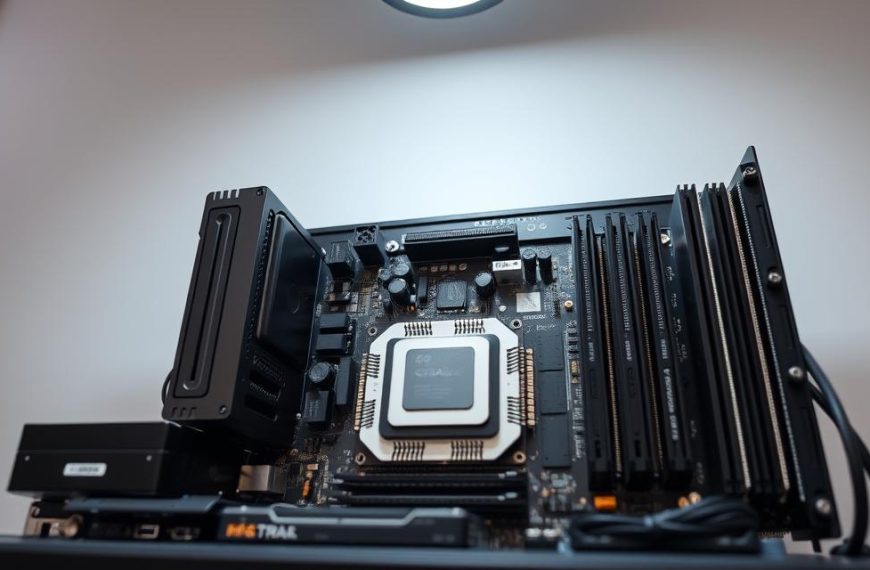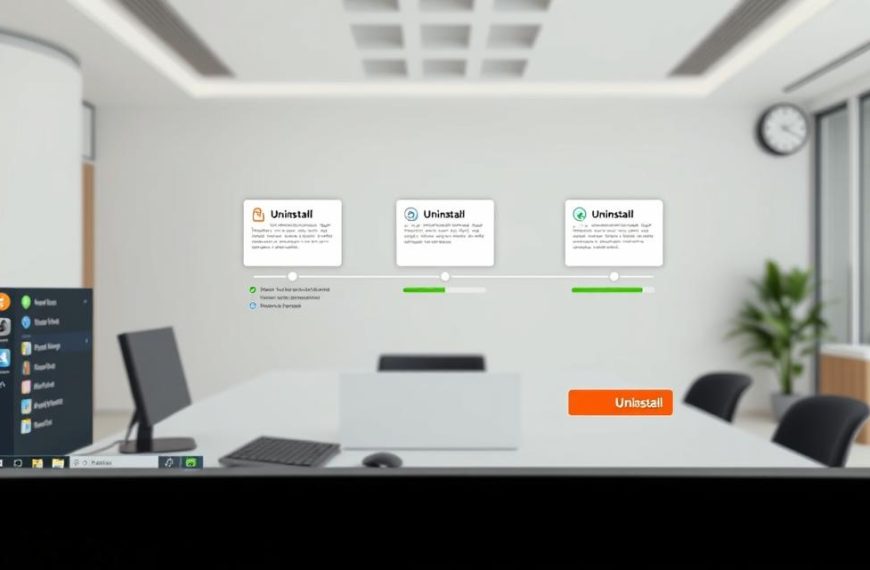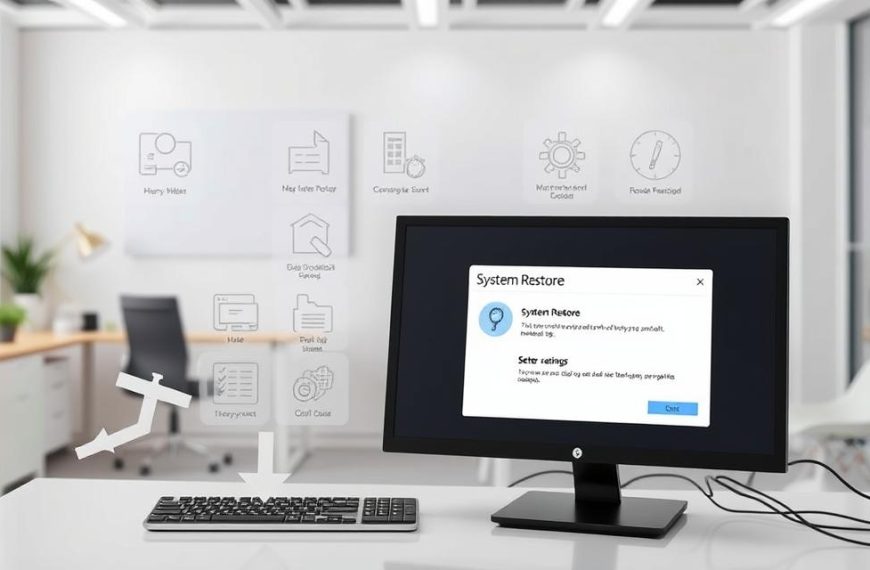Many students wonder about the CIS degree difficulty when choosing universities. The difficulty level varies a lot between people.
Your skills and interests greatly affect how hard CIS will be for you. CIS is different from pure computer science because it mixes tech with business.
This mix offers a special learning experience. While CIS has less math than computer science, it requires you to think analytically.
Doing well in CIS depends on your comfort with tech and business ideas. Knowing this helps students make better choices about their studies.
What is Computer Information Systems?
Computer Information Systems is a field that mixes technology with business strategy. It focuses on using technology in real-world situations. Students learn to connect technical skills with business needs.
This field has grown a lot in recent years. It now includes data analytics, cloud computing, and cybersecurity. These areas make the CIS major very important in today’s digital world.
Defining the CIS Discipline
Computer Information Systems combines tech skills with business management. People in this field create and manage systems that help businesses run smoothly. They make sure technology helps achieve business goals and boosts efficiency.
The main areas of focus are data management, systems analysis, and improving business processes. CIS experts work with databases, networks, and software. They turn business needs into technical plans.
At its core, CIS is about solving real business problems with technology. Graduates learn to tackle actual challenges using the right tech. This hands-on approach sets CIS apart from more theoretical computing fields.
Key Differences Between CIS and Computer Science
Even though both involve computing, they have different focuses. Computer Science focuses on algorithms and software basics. CIS, on the other hand, is about using technology in business settings.
CIS includes more business and management courses. Students study organisational behaviour, project management, and business intelligence. Computer Science, by contrast, has more maths, algorithms, and theory.
When it comes to careers, CIS and Computer Science paths are distinct. CIS graduates often become systems analysts, IT managers, or business intelligence specialists. Computer Science graduates usually go into software engineering, algorithm design, or research.
| Aspect | Computer Information Systems | Computer Science |
|---|---|---|
| Primary Focus | Business technology integration | Algorithmic theory and innovation |
| Core Curriculum | Data management, business systems | Software development, mathematics |
| Practical Application | Real-world business solutions | Theoretical computing concepts |
| Career Pathways | IT management, systems analysis | Software engineering, research |
| Skill Emphasis | Business communication, project management | Algorithm design, programming depth |
This comparison shows how CIS and Computer Science serve different roles in tech. CIS prepares students for jobs where tech meets business. Knowing these differences helps students pick the right path for their career goals.
Is Computer Information Systems a Hard Major?
How hard Computer Information Systems is can vary a lot. Some find the mix of tech and business tricky, but others enjoy it. It really depends on your skills and background.
Factors That Determine Difficulty
Several things make CIS studies seem tough. These factors affect each student differently, making their learning journey unique. Knowing these helps you decide if CIS is right for you.
Technical and Analytical Demands
CIS needs you to be good at many tech skills. You’ll learn to code, manage databases, and analyse systems. These skills are key to the programme’s challenge.
Being able to think analytically is also important. You’ll have to solve complex business problems with tech solutions. This needs logical thinking and a systematic way of solving problems.
The technical needs in CIS are different from computer science. CIS focuses on practical application, not just theory. This makes the CIS vs CS choice important for students.
Mathematical Rigour in the Curriculum
Math is a big part of CIS, but the amount can vary. You’ll study statistics, discrete maths, and quantitative analysis. These maths help with making data-driven business decisions.
Compared to computer science, CIS has less advanced maths. Computer science often includes calculus and more theoretical maths. The CIS vs CS difference in maths makes CIS easier for students with good maths skills.
In CIS, you’ll mainly use maths and stats for business analysis. This is different from the maths in computer science, which is more theoretical.
Assessing the Time and Effort Required
CIS programmes need a lot of time to learn both tech and business skills. You’ll spend a lot of hours on projects and assignments. This shows how wide-ranging CIS is.
CIS teaches skills in a step-by-step way. You start with basics and then learn to apply them in complex projects. This requires consistent effort throughout your studies.
Managing your time well is key for CIS students. They need to balance tech projects with business studies. Good time management and study habits are essential.
The interdisciplinary nature of CIS means you’ll learn many things. This requires more varied study time than single-focus majors. But, it also makes learning more interesting for many.
When looking at CIS vs CS, the time needed is different. Computer science needs more theoretical study, while CIS focuses on practical application. Both paths require hard work, but in different ways.
Essential Skills for Excelling in Computer Information Systems
To succeed in Computer Information Systems, you need both technical skills and the ability to work with people. CIS experts must link technology with business goals. They need a wide range of skills, not just technical knowledge.
Technical Proficiencies Needed
CIS experts must have a solid technical base. This is key for designing, setting up, and keeping information systems running well.
Programming and Database Management Skills
Knowing programming languages like Python, Java, and SQL is critical. These skills help CIS professionals create apps, automate tasks, and handle data well.
Understanding databases is also key. CIS experts need to know about relational databases, how to normalise data, and how to make queries efficient. This helps them create good data storage solutions.
Understanding Networks and Security Protocols
Knowing about networks is essential for modern systems. CIS experts must understand network layouts, protocols, and hardware.
It’s also important to know about security. CIS experts need to know about encryption, how to authenticate, and how to find vulnerabilities. This helps keep organisations safe from cyber threats.
Critical Soft Skills for CIS Professionals
While technical skills are important, soft skills are key for moving up in CIS. These skills help turn technical ideas into something useful for business.
Problem-Solving and Logical Analysis
Being able to think analytically is a must. CIS experts can break down big problems into smaller parts. This helps find the root cause and solve it.
Being able to reason logically is also important. It helps CIS experts design systems and solve problems in a methodical way. This is very useful for making business processes better with technology.
Effective Communication in Technical Teams
Being able to communicate clearly is vital. CIS experts need to explain complex ideas in simple terms to non-technical people.
Working well with others is also important. CIS professionals need to listen well, give helpful feedback, and find solutions together. This helps projects succeed.
| Skill Category | Specific Competencies | Business Impact | Development Resources |
|---|---|---|---|
| Technical Skills | Programming, Database Management, Networking | System reliability and efficiency | Online courses, certification programmes |
| Security Knowledge | Encryption, Access Controls, Threat Detection | Data protection and compliance | Security certifications, workshops |
| Analytical Abilities | Problem-solving, Logical Reasoning | Process optimisation and innovation | Case studies, practical projects |
| Interpersonal Skills | Communication, Team Collaboration | Stakeholder satisfaction and adoption | Presentation training, team exercises |
To get good at CIS, you need to keep learning and applying what you learn. The best CIS professionals mix technical skills with business smarts and the ability to work well with others.
Core Coursework and Common Challenges
Exploring a Computer Information Systems programme involves looking at the curriculum and common challenges. This approach helps future students understand what they will face.
Typical Courses in a CIS Programme
The CIS curriculum combines technical skills with business knowledge. It offers a mix of programming, systems design, and business strategy courses.
Systems Analysis and Design Principles
This course teaches students to assess organisational needs and design systems. They learn about gathering requirements, modelling processes, and creating system specifications.
Students study data flow diagrams, entity-relationship models, and user interface design. They learn to connect technical teams with business stakeholders.
Business Application Programming
This class focuses on creating practical business solutions. Students use languages like Python, Java, or C# to solve real-world problems.
The course covers database integration, user experience design, and scalability. Projects mimic real business scenarios, preparing students for the job world.
Other courses include cybersecurity, database management, and project management. Economics and business communication classes complete the CIS curriculum. This sets it apart from fields like management information systems.
Challenges Faced by CIS Students
Computer Information Systems programmes are rewarding but come with challenges.
Integrating Business and Technology Concepts
Students often find it hard to balance technical skills with business knowledge. The programme requires proficiency in coding and organisational strategy.
“The most successful CIS professionals speak both business and technology fluently”
Students need to switch between technical details and business goals. They must translate complex technical ideas into business value.
Adapting to Rapid Technological Changes
The tech world changes fast, requiring constant learning. Students must learn on their own to keep up with new tools and methods.
Course materials might not always be up-to-date. Successful students build professional networks and follow industry news to stay current.
The CIS curriculum helps students through hands-on projects and case studies. But, overcoming challenges depends on each student’s adaptability and commitment to learning.
Conclusion
Computer Information Systems is a challenging but rewarding major. It combines technical skills with business knowledge. This mix is highly sought after in today’s job market.
The level of difficulty depends on the individual. But, with hard work and the right strategy, success is within reach.
Looking into CIS career paths shows many promising options. Jobs like systems analyst, IT manager, and business data analyst come with good pay and chances for growth. Adding business studies to CIS broadens your career options, opening doors to various industries.
If you’re interested in technology and its use in business, CIS might be the right choice for you. It prepares you for a career that’s both dynamic and full of opportunities for growth and influence.

















